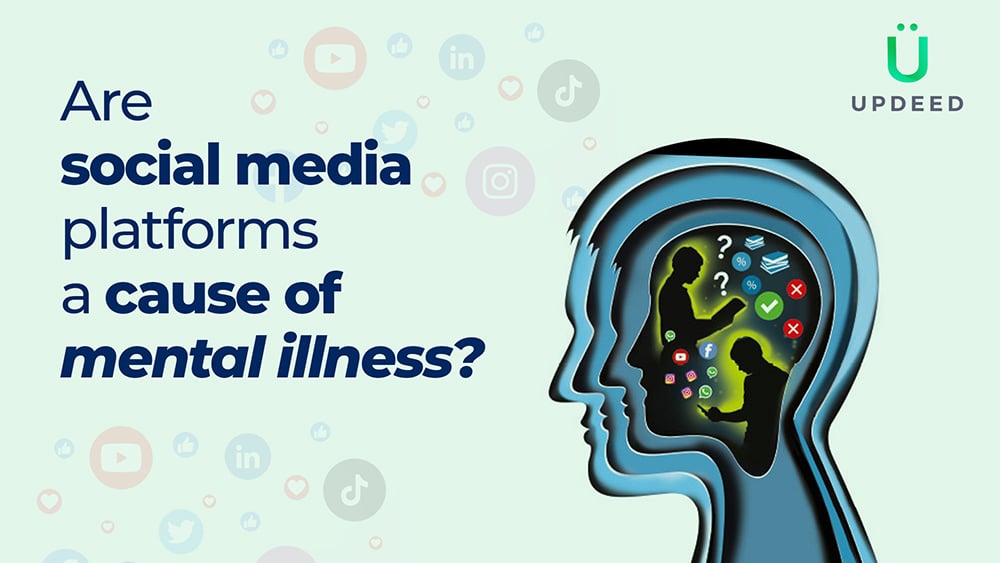Are Social Media Platforms a Cause of Mental Illness?
In today’s world, social media platforms play an increasingly significant role in our daily lives. From keeping in touch with friends and family to staying up to date with current events, social media has become a ubiquitous part of our lives.
Social media usage is a popular online activity, with over 4.26 billion users worldwide in 2021. This number is expected to rise to nearly six billion by 2027. Moreover, internet users spend an average of 144 minutes per day on social media and messaging apps, an increase of over half an hour since 2015, making social media an integral part of daily internet usage.
As more and more people use social media, there has been growing concerned about its impact on our mental health.

A growing concern
On the one hand, social media can provide a source of support and connection for people who may be struggling with mental health issues. Online communities can offer a safe space for people to share their experiences and connect with others who understand what they are going through. Moreover, social media platforms can provide access to information and resources to help individuals with mental health problems.
However, there are also several ways in which social media can contribute to mental health problems.
For starters, social media use can lead to feelings of comparison and low self-esteem. When scrolling through social media, it is easy to compare our own lives to the highlight reels of others and feel inadequate. Research has shown that exposure to images of people who appear to have a more attractive or successful life than one’s own can increase feelings of anxiety, depression, and low self-esteem.
Further, social media use has been linked to anxiety and depression. Studies have shown that excessive use of social media is associated with higher levels of anxiety and depression, as well as sleep disturbances and decreased life satisfaction. The constant exposure to negativity and drama on social media can also take an emotional toll, causing individuals to feel overwhelmed and stressed.
Another aspect of social media that can contribute to mental health problems is the pressure to maintain a perfect online image. People may need to present a certain image of themselves to others, leading to self-criticism and the fear of being judged by others.
This can also cause people to feel like they are not living up to expectations, leading to guilt and shame.
In addition, social media can be a major source of distraction, leading individuals to feel like they are missing out on important experiences in their lives. When people constantly check their social media feeds, they may feel like they are missing out on important moments or opportunities, leading to frustration and dissatisfaction.
On a different note
Despite the potential downsides of social media, it is important to remember that not all social media use is problematic. Like many things in life, social media can have positive and negative effects, depending on how it is used. If people are able to use social media in a balanced and healthy way, they can reap its benefits while minimizing the risks.
In conclusion, while social media platforms can contribute to mental health problems, they are not solely to blame. Mental health is a complex issue, and social media use is just one of many factors that can impact an individual’s well-being. By being mindful of our social media use and taking steps to minimize its negative effects, we can help protect our mental health and well-being.
Ready to make a positive impact in the world?
UPDEED is the place for you. Our free and open platform is filled with inspiring stories from individuals and organizations who are making a difference in their communities and beyond. Connect and collaborate with like-minded individuals from around the globe on UPDEED, and discover your own potential to create meaningful change. Join our community and make a difference.





